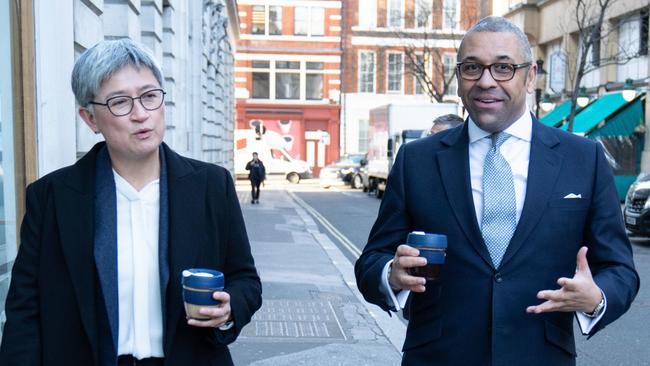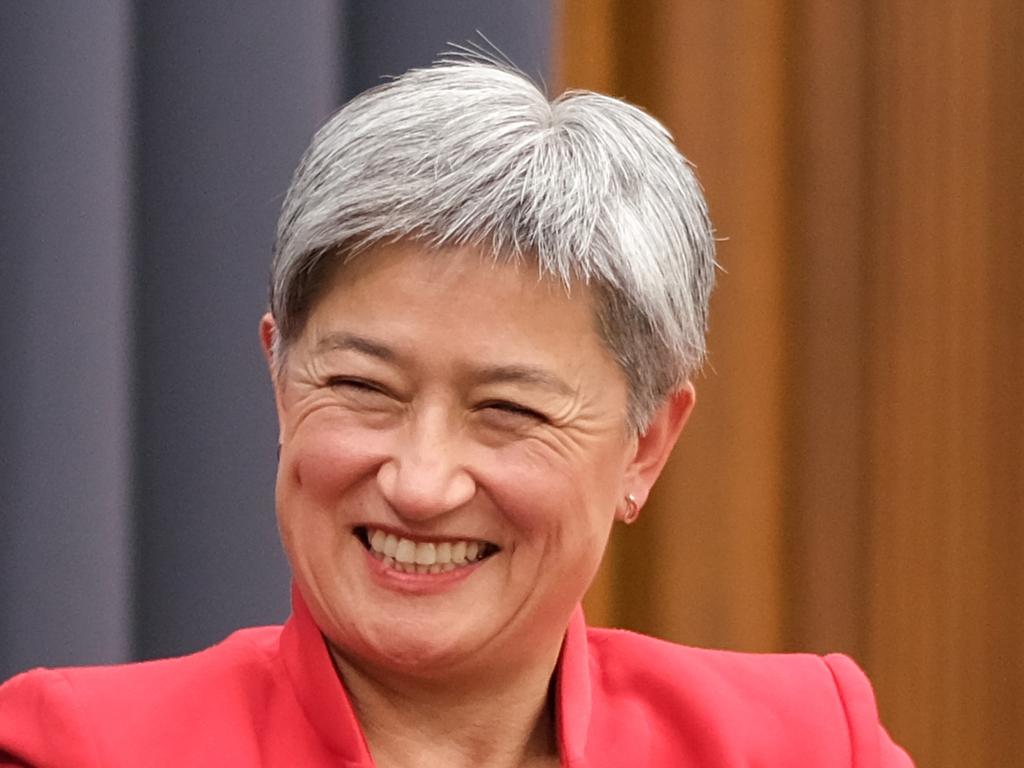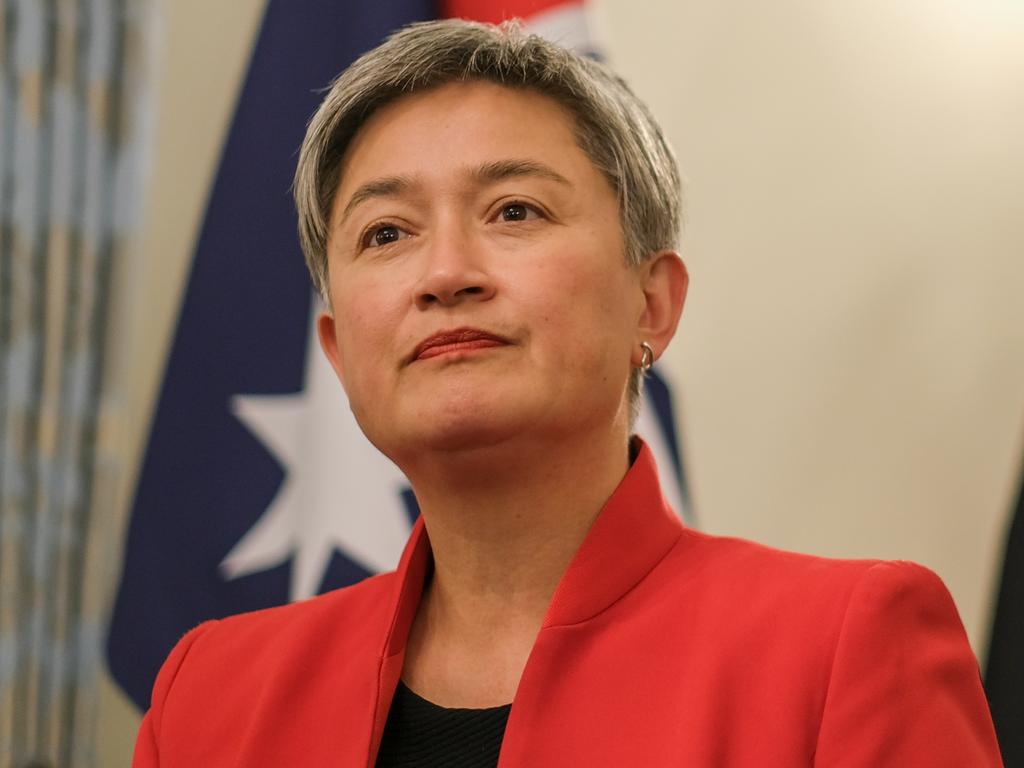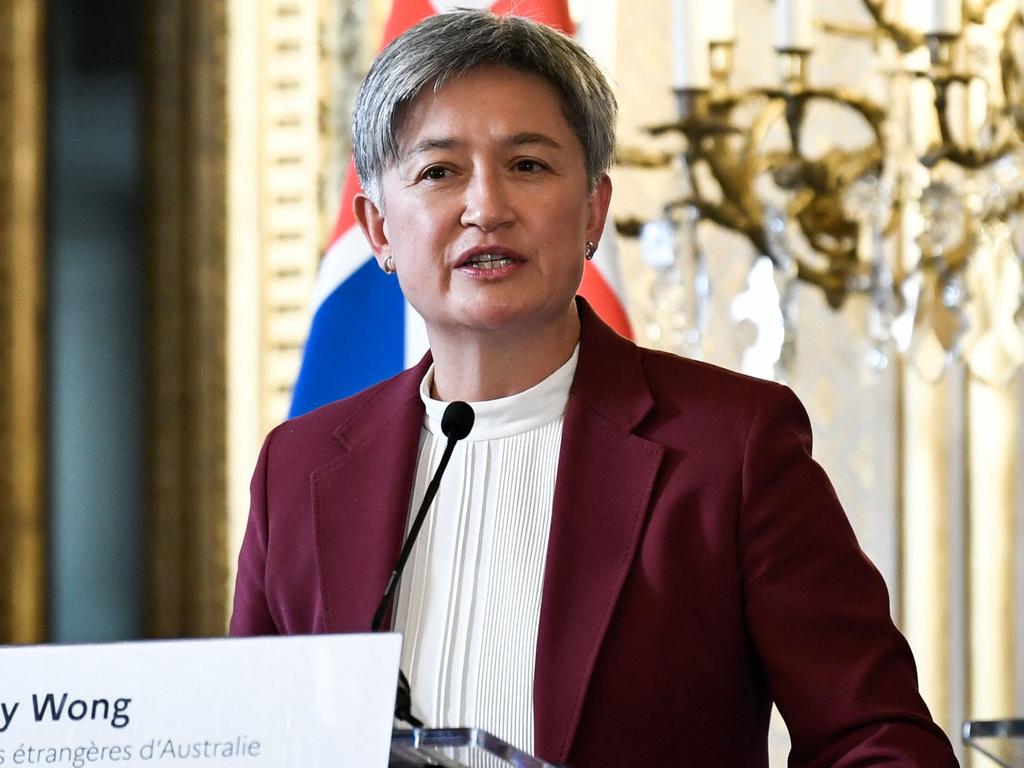
Identity politics holds that people are defined by, indeed imprisoned in, group characteristics such as race, gender, sexual orientation or sometimes national history, rather than by their own moral and intellectual choices. It pits group against group and engenders endless sterile conflict. It rewards confected victimhood, endlessly seeking out new villains to demonise, or old villains to demonise in new ways.
Almost unbelievably, the otherwise splendidly sensible Penny Wong delivered an identity politics speech to King’s College London on January 31. It was the worst and strangest speech of her life, and deserves more attention. Combined with equally odd comments from Anthony Albanese linking the proposed constitutional change to establish an Aboriginal voice to parliament with foreign policy, these are disturbing signs that the intellectual cancer of identity politics is seeping into the government’s foreign policy.
Of course, we should keep these strange derelictions in context. Overall, the Albanese government has been strategic and effective in foreign and defence policy. Defence Minister Richard Marles will deliver a major boost to military capabilities. The Prime Minister has maximised the benefits of AUKUS, the Quad, the US alliance, and not compromised any national interest with Beijing. Wong has outmanoeuvred the Chinese in the Pacific. She rightly leads the foreign policy debate.
The London speech was a radical departure and frankly weird. It earned negative reviews in the British press and called to mind an antique Australian cultural cringe. The second half of the speech was OK, though Wong succumbed to quoting her previous speeches, but the intellectual structure was bizarre, presenting Indo-Pacific diplomacy as a question of the colonial powers – to wit, Britain – needing to come clean about their past. She made a plea that regional nations be treated as equals, presumably by former colonial powers like Britain. I would say the speech was 60 years out of date. When it resulted in British Foreign Secretary James Cleverly promising Britain would always treat Australia as an equal, I wondered if I’d been thrown back into The Adventures of Barry McKenzie.
In the speech, An Enduring Partnership, Wong recalled that British colonialism was sometimes unpleasant. She cited her family’s experience in Malaysia, including her grandmother working in domestic service. She said “such stories can sometimes feel uncomfortable”, but understanding the past helps us “better share the present and the future”.
Even by the standards of diplo-waffle that is excessive cliche, almost a medical overdose. She argued that such honesty provided more common ground “than if we stayed sheltered in narrower versions of our countries’ histories”. This is a crackers thing to say as your first big speech in Britain as foreign minister.
Which narrow versions of its history is Britain trapped in? It has an Asian-descent Prime Minister, an African-background Foreign Secretary, its universities routinely excoriate British history, the London School of Economics just abolished the Lent term in case anyone was offended by Christian terminology, it defaces statues even of Winston Churchill. How much woke is enough?
This is where identity politics is so wretched. It never ends but consumes itself in ever more sterile negativity. And logically, why apply this stricture only to Britain, if we’re all equals?
I have no idea why Wong’s father left Malaysia. I’m glad he did because we got a wonderful person and political leader in the bargain. But the truth is that ethnic Chinese, like ethnic Indians, have left Malaysia in large numbers since the 1970s because of racial discrimination they face at the hands of the majority Malay government under the “bumiputra” policies. Many ethnic Chinese were killed and many more left homeless in the Malaysian race riots of 1969.
These stories too can be “uncomfortable”. Should our diplomacy, bizarrely, insist on their being ventilated again? We could run through the whole region. Every nation has bad things in its history. Why would it be only the Brits whom we demand confront their “uncomfortable” past? Surely we’re not saying the Brits are special because they’re Brits. This crazy identity politics always ends up in some dismal de facto racism.
Similarly, the version of Australian diplomatic history Wong gave in this speech was inaccurate in substance and childishly partisan. Wong said that only from the 1920s did Australia begin to consider its own national interests in foreign policy. That is absurd. The act of Federation in 1901 was an act of national security and therefore foreign policy, an act to secure the continent.
Is Wong unaware of Alfred Deakin, who wrote books about Indian culture before he went into federal politics, who twice refused an honorary Oxford doctorate because he didn’t want to be beholden to a foreign government, who defied the clear opposition of the British authorities of the time to invite Teddy Roosevelt’s Great Fleet to visit Australia?
This visit led to the first US presidential promise to support Australian security, and Deakin used it to generate support for the formation of an Australian navy, which London also opposed. Deakin wanted the Commonwealth to be a democratic federation of self-governing dominions. Australian leaders certainly pursued Australia’s interests, but it seems to be government educational dogma that we should know nothing of our history.
Similarly, Wong’s partisan treatment of post-World War II engagement of Asia, in which only Gough the Great and courageous Keating rate a mention, was pitched at comic book level and is in any event absurd in ignoring everything Coalition governments did to engage Asia. Such partisan nonsense is unbecoming for a Labor minister speaking to a British audience. Why not stress the bipartisan nature of Australia’s commitment to Asia?
Recently, against the formal advice of the Department of Foreign Affairs and Trade, Wong sent an official observer to a conference of the Treaty on the Prohibition of Nuclear Weapons. Joining that treaty would mean breaking the US alliance, as members cannot participate in nuclear deterrence in the way we do as part of the extended US nuclear umbrella. Yet the government won’t say plainly what is obviously the truth, that it will never join the treaty.
The most obvious interpretation of both the gravely mistaken speech in London and the attendance at the nuclear conference are attempts to propitiate the gods of the progressive zeitgeist, within Labor and more generally.
For his part, Albanese recently argued that one reason we must vote Yes to the voice is because our international reputation would suffer if we vote No. That is nonsense. The dynamics of that kind of international coverage are that only if we label ourselves as racist will the American and European elites do so too. Racial discrimination is illegal in Australia and a vote No would not be evidence of hostility to Aboriginal Australians but of a determination to reject race as a fundamental category of civic identity.
In national security, the Albanese government has been much more Bob Hawke than Gough Whitlam. These lamentable aberrations hopefully don’t signal a change of direction.








Identity politics damages or destroys everything it touches, even, amazingly, foreign policy. Globally, centre-left parties succeed or fail to the extent they ignore, or at least pay only minimum lip service to, this most destructive dynamic in cultural politics.